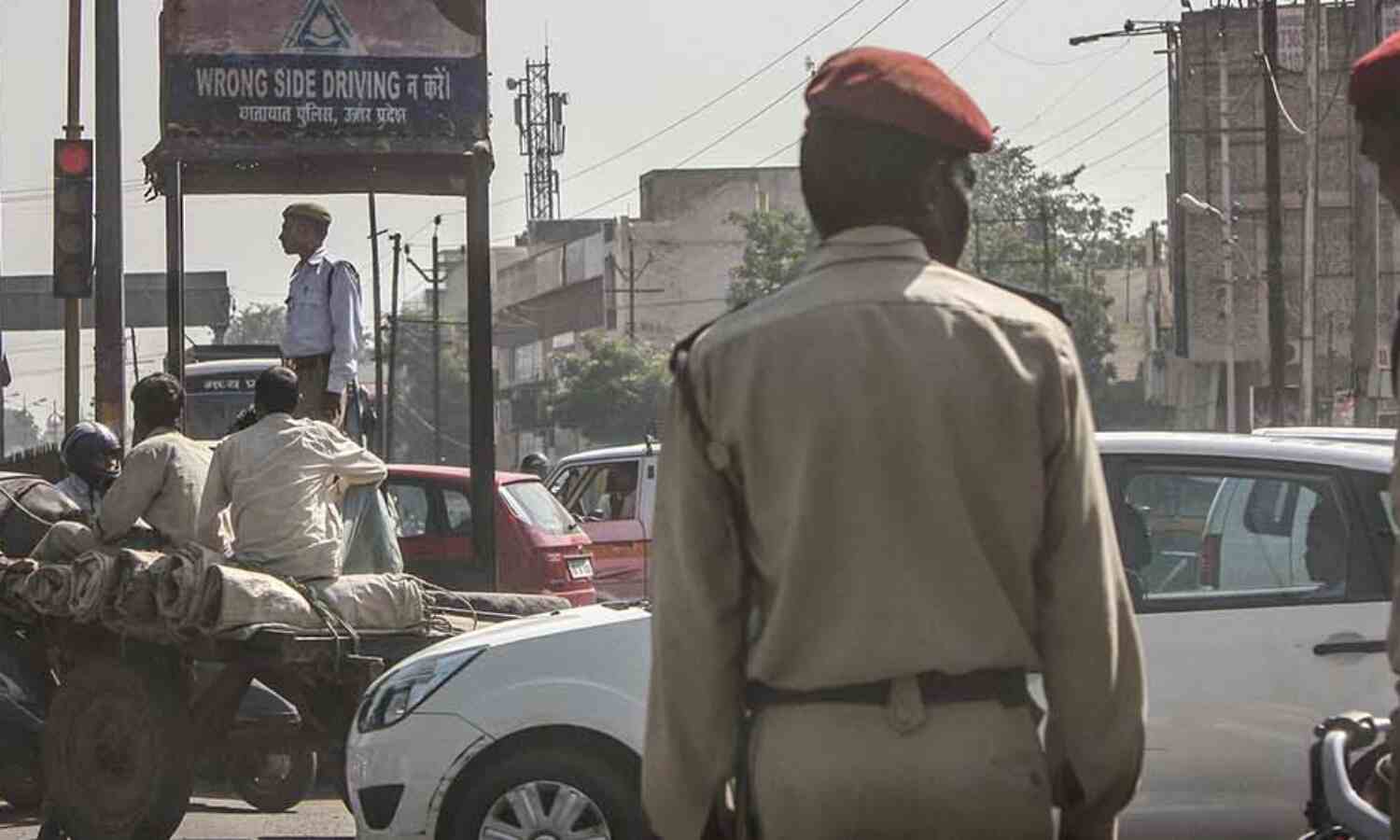Upper-Caste Hindus Fear The Police The Least, Sikhs The Most
New Delhi: Upper-caste Hindus fear the police the least, are most likely to have a favorable opinion of them and are least likely to be contacted by them, according to a new study by a think tank and an NGO.
Among Hindus, 18% of scheduled caste (SC) respondents reported being the most fearful of police, said the ‘Status of Policing in India 2018’, released in May 2018 by Common Cause, an NGO, and Lokniti Programme of the Centre for the Study of Developing Societies (CSDS).
This fear of police among certain groups is likely to be related to the fact that more than 55% of undertrials in India are Muslim, Dalit or tribal, according to this analysis of national crime data. In Jharkhand, for instance, about 500 Adivasis (tribals), officially listed as scheduled tribes (STs) are in jail because trials are slow, according to this 2017 report by the Centre for Justice and Peace, a human rights advocacy.
The Sachar Committee report of November 2006 had also pointed to the poor representation of Muslims in various government services. It recommended greater Muslim representation in the police force as a way to build confidence in the community.
“The major finding for us was that those who are higher up the power hierarchy in society are treated better by the police, those below are treated badly,” said Vipul Mudgal of Common Cause and one of the advisors for the study. “The relationship between the police and poor and vulnerable citizens is especially shaky. However, I would say we can still recover lost ground.”
The disproportionate representation of castes in the police force could be one reason for the caste divide in how people see the force. For instance, in Uttar Pradesh, of the 75 district superintendents of police, 13 are Thakurs, 20 Brahmins, one Kayastha, one Bhumihar, one Vaishya, and six other upper castes, according to this July 2017 report in Hindustan Times.
The problem lies in the mechanical adherence to the policy prescription on reservation without emphasis on the larger principle behind it, according to Devika Prasad, coordinator (police reforms), Commonwealth Human Rights Initiative (CHRI). Representation of groups such as scheduled castes, other backward castes, tribes and women exists but it is low, she pointed out.
“While there is monitoring of the extent to which reservation is being met, its ultimate aim is only to get to the needed numbers,” she pointed out. “There is an urgent need for police departments and state governments to recognise the value of diversity, in and of itself as a vital attribute to improve policing culture and in the long run, their response. Greater diversity will make police departments more democratic from within, and in this way, more responsive to different kinds of people.”
Sikhs and Punjab residents report highest incidence of fear
Among religious communities, the Sikhs feared the police the most and Hindus the least, the report found. State-wise distribution showed high levels (46%) of fear of the police in Punjab. Tamil Nadu and Karnataka follow Punjab in this respect.
The report further found that poorer Sikhs are more likely to be scared of the police. But this is true of all religious groups. If we consider the upper classes among all religions, Sikhs (37%) are much more likely than Hindus (14%) or Muslims (9%) to fear the police. The trend could be linked to the history of violence in Punjab in the last four decades and how the police responded to it, especially in the 1990s and 2000s when militancy peaked in the state (read here, here and here).
“The way policing in Punjab worked for 15-20 years due to the militancy can be correlated with these data,” said Mudgal. “During this period of unrest in the state, a lot of covert policing happened, with random arrests and disappearance of people. This is why fear has stayed in people’s minds.”
Himachal Pradesh (0.2%) and Uttarakhand (1.4%) residents were the least fearful of the police. In southern India, except Kerala, nearly all states reported high levels of fear of the police.
Hindus, Muslims in the south mostly likely to fear the police
There is a general perception that Muslims in the Hindi heartland fear the police more than anywhere else.
But the report found that Muslims in southern India are more likely to be fearful of the police than those living elsewhere, particularly in Karnataka, Tamil Nadu and Andhra Pradesh.
“South India has historically been better in policing, but after the recent incidents of terrorism, the police has arrested many and this created a fear among the minds of Muslims in this region,” said Mudgal.
Fear among Hindus of the police was also highest in the southern states.
What can be done to ensure that all communities have confidence in the police? "Greater effort needs to be put in by the police and the government to meet even the minimum standards of representation through quotas," said Prasad. She added that the government needed to carry out periodic public surveys of perceptions about the police along the lines of the National Crime Research Bureau’s annual report.
(Saha is a media & policy communications consultant with the Policy & Development Advisory Group, Delhi. He is also a freelance writer and holds an MA in Gender & Development from the Institute of Development Studies, University of Sussex, UK.)
We welcome feedback. Please write to respond@indiaspend.org. We reserve the right to edit responses for language and grammar.




